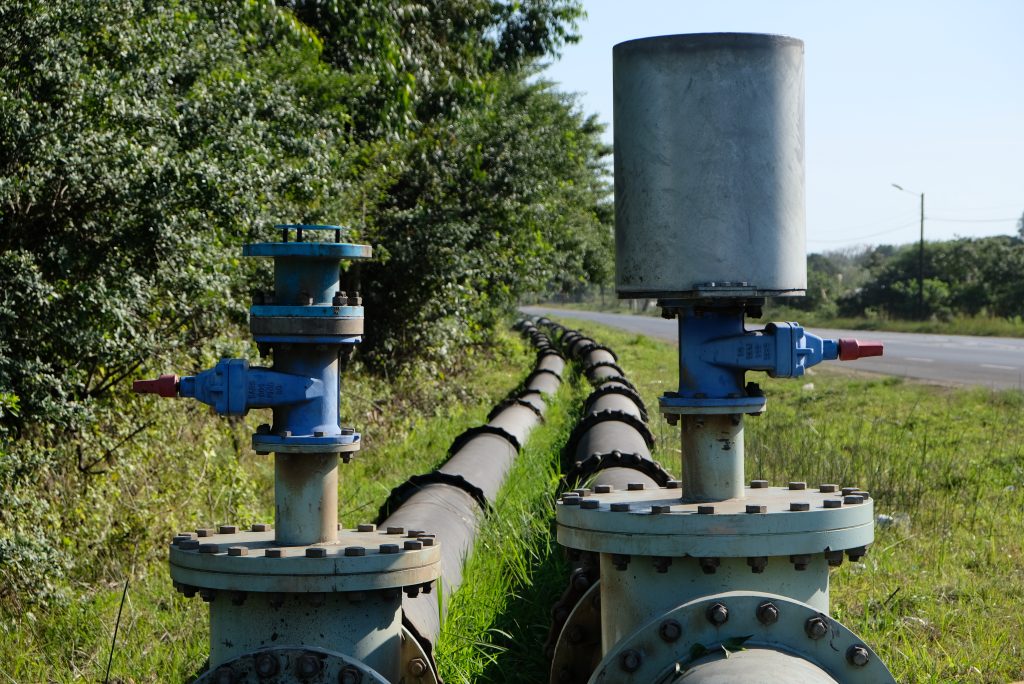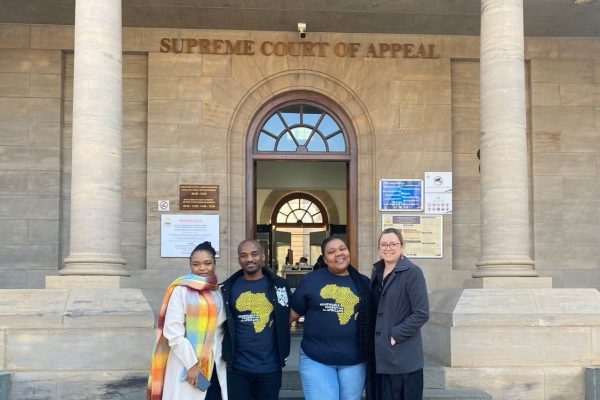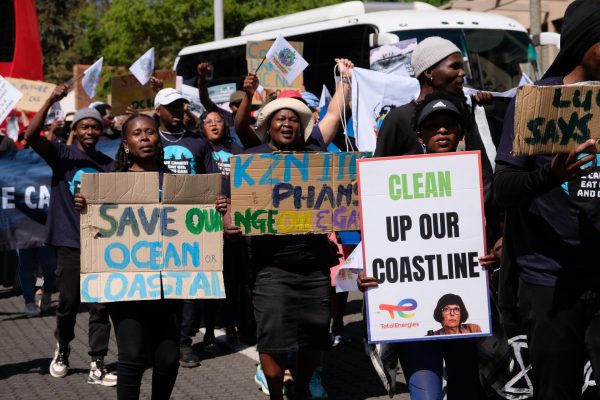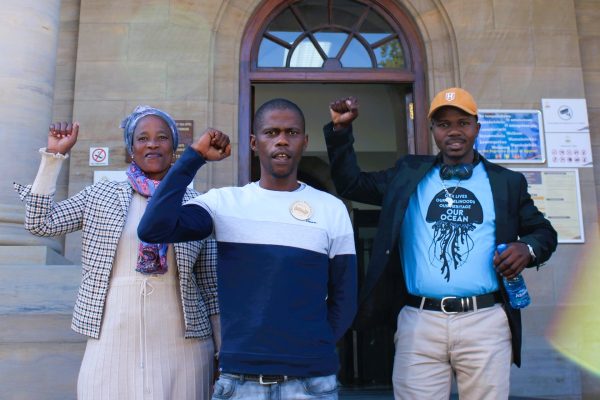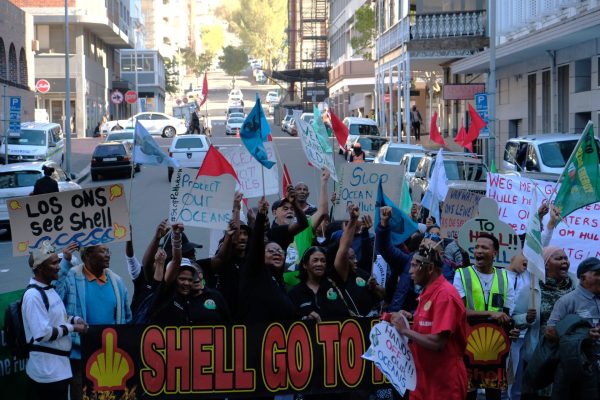The Gas Amendment Bill – currently under consideration by the National Assembly – remains a source of contention across South Africa. There are concerns that it contradicts climate targets, has financial implications, and has a negative impact on the property security of vulnerable communities. It also gives the Minister of Mineral Resources and Energy sole authority. Concerned communities and individuals were let down by the insufficient public participation process.
The Gas Amendment Bill, among other things, aims to amend the Gas Act of 2001. It will provide for the promotion of the orderly development of the gas industry, as well as to provide for new developments.
Public hearings on the Gas Amendment Bill began in November 2021 in Mpumalanga and Gauteng, then moved to KwaZulu-Natal. They resumed in the Western and Northern Cape, and concluded in the Free State in January 2022.
On 9-10 December 2021, Natural Justice hosted local organisations and communities from across South Africa in a workshop to discuss the implications of the Bill. Participants in the workshop included members of South African communities, as well as local community organisations working on the frontlines of environmental justice. While strengthening and connecting these movements, these communities are actively fighting for climate justice – to collectively confront climate change, provide an alternative narrative for climate justice, and co-create a just future.
Among the topics covered at the workshop were stewardship of the earth and indigenous wisdom; inter-community dialogue on climate change; free, prior, and informed consent; using the law; litigation; the safety and security of human rights defenders; and co-creating a just future. Several workshop sessions focused on the effects of laws and policies on communities, particularly the Climate Change Bill and the Gas Amendment Bill.
Challenges experienced by communities in public participation processes
Communities began to voice their opinions and concerns on a variety of activities in which they had participated, including when they were part of public participation in the legislative processes. A problem raised frequently was that the process fails to provide them with adequate time and arrangement for participation.
“During these hearings, communities are not given adequate time and opportunity to participate,” said Meshack Mbangula, National Coordinator of Mining Affected Communities United in Action (MACUA). “The public hearings are held at a specific location, and some of our members have had to participate via video call due to COVID restrictions. Many of the communities do not have internet access and are unable to participate in the video call due to a lack of knowledge about how to do so. Furthermore, at many of the times, transportation to the venue of the public hearings is not provided to remote communities.”
According to Mbangula, the venues are usually too far for communities that would have wanted to participate. He went on to say that those public hearings are not properly advertised, and that people are not given reasonable and proper notification. In Mpumalanga, the meetings were, “changed on a regular basis.” He also stated that the language used in these documents is difficult to understand, stating, “there was a need for translators for many of the communities who did not understand the legal jargon of the documents.”
Janet Solomon of the South Durban Community Environmental Alliance (SDCEA) attended the Durban public hearings, and her experience was like the one described above. “The schedules were changed at random; we were not given enough time to present, and some communities had no idea what they were doing at this venue (some mistook it for a job fare).”
“Even though we only had a few minutes to present, I was interrupted and lost track of what I was saying. At the hearing, I was not given a reasonable amount of time or a meaningful opportunity to present”, she concluded.
Brett Arendze represented the Guriqua Council at the Saldanha Bay Gas Amendment Bill public hearings. He explained that fishing is the primary source of income for most of the communities. “The Gas Amendment Bill will have a negative impact on all these communities. The communities turned out in force for the public hearings.”
He concluded, “There was little government support and advertising in the area, but the fishing communities were heavily involved in communicating the location, time, and mode of transportation. This is a community that eats off the same plate and views the ocean as their own farm.”
Public Participation in South African law
South Africa is a constitutionally democratic country, thus public participation must follow certain precincts. Importantly, sections 59 and 72 of the Constitution require Parliament to facilitate public participation, conduct business in an open manner, and hold public sessions. The principles of public participation must encourage active and representative participation, which allows for meaningful influence on decisions that affect people’s lives.
In Doctors for Life International v Speaker of the National Assembly and Others and in Matatiele Municipality and Others v President of the RSA and Others case, the Constitutional Court stated that “facilitation of public involvement in the legislative process, therefore, means taking steps to ensure that the public participates in the legislative process. That is the plain meaning of section 72(1)(a).”
Furthermore, it is important for the legislature to afford reasonable opportunities for the public to participate effectively in the law-making process. Judge Sachs went on further to say: “All parties interested in legislation should feel that they have been given a real opportunity to have their say, that they are taken seriously as citizens and that their views matter and will receive due consideration and could possibly influence decisions in a meaningful fashion.”
Moreover, communities should be given reasonable time to prepare and make sufficient arrangements so that they can effectively participate in the law-making processes in South Africa. The Constitution is the ultimate law in South Africa, and it recognises that communities must be given ample opportunity to ensure that they participate in decisions that affect their daily livelihoods.
The legislature should set up its apparatus so that it is able to support communities affected by any issues i.e., transport, internet access or language, especially during times when it becomes more difficult for communities to gather, such as during COVID restrictions. It is of paramount and constitutional importance for communities to be allowed to participate in the law-making process effectively.

